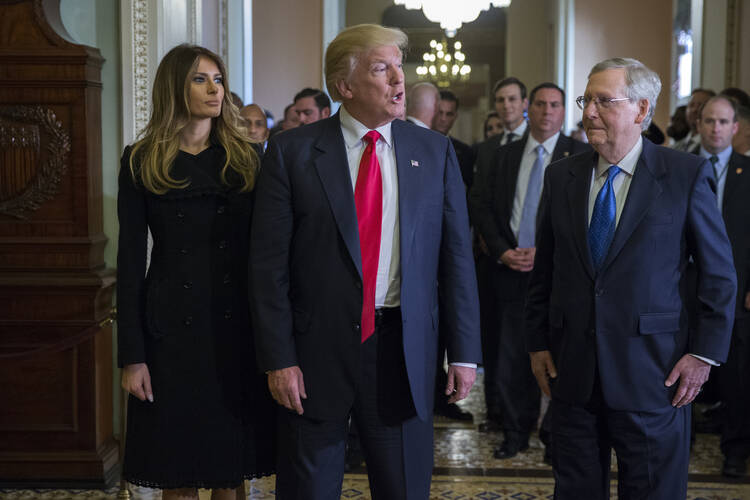Pope Francis is reported to have given a principled answer when asked on the eve of the American elections what he thinks about Donald J. Trump: “I do not pass judgement on persons or politicians, I just want to understand what are the sufferings that their way of proceeding causes to the poor and the excluded.”
La Repubblica, Italy’s best-selling daily, published these words today as part of an interview it says was given by Francis to Eugenio Scalfari, the veteran Italian journalist and founder of the paper. It took place on Nov. 7 at Santa Marta, the Vatican guesthouse where the pope lives.
Mr. Scalfari said Pope Francis told him that “refugees and migrants” are his main concern right now. He quoted the pope as saying that while only “a small part [of these] is Christian, that does not change the situation as far as we are concerned, nor their sufferings and hardships.”
“The causes are many, and we do what we can to remove them,” the pope is reported as saying. “Sadly, these are mere provisions that are [then] opposed by people who fear that this will cause them to lose jobs or [receive lower] salaries. Money is against these poor people just as it is against the refugees and migrants and, moreover, there are also poor people in rich countries that fear welcoming their fellow human beings from poor countries. It’s a perverse circle that must be broken.”
La Repubblica also quotes Francis as saying, “We must knock down the walls that divide, seek to increase the well-being and to spread it, but to reach that goal we must pull down those walls and build bridges that make it possible to reduce the inequalities and increase freedom and rights.”
The pope noted that “one of the phenomena that inequality encourages is the movement of peoples from one country to another. But after two, three or four generations these people integrate and their differences tend to disappear totally.”
Mr. Scalfari writes that he also spoke to the pope about the talk he gave to the third World Meeting of Movements, which brings together “popular” or grass-roots movements, on Nov. 5.
Mr. Scalfari reveals that he told Francis that he had always considered him as “a revolutionary and a prophet” and he became even more convinced of this when he read that the pope had encouraged the millions of people in these grassroots movements to get involved in politics. He quotes Francis as confirming that he had indeed encouraged them to get involved in politics, but not in the type of politics that involves “power struggles, egoism, demagoguery, and money” but rather in “the higher, creative politics, the great visions. The kind that Aristotle speaks about in his works.”
Pope Francis has received Mr. Scalfari on at least three previous occasions “for a conversation, not an interview,” an informed Vatican source told America. During those conversations, however, he does not take notes nor make a recording. After each long conversation he writes up it as an “interview,” relying only on memory. The 92-year-old Italian did the same today, and—to the surprise of many in Rome—L’Osservatore Romano, the Vatican daily, carried the full text in the edition published this evening.








